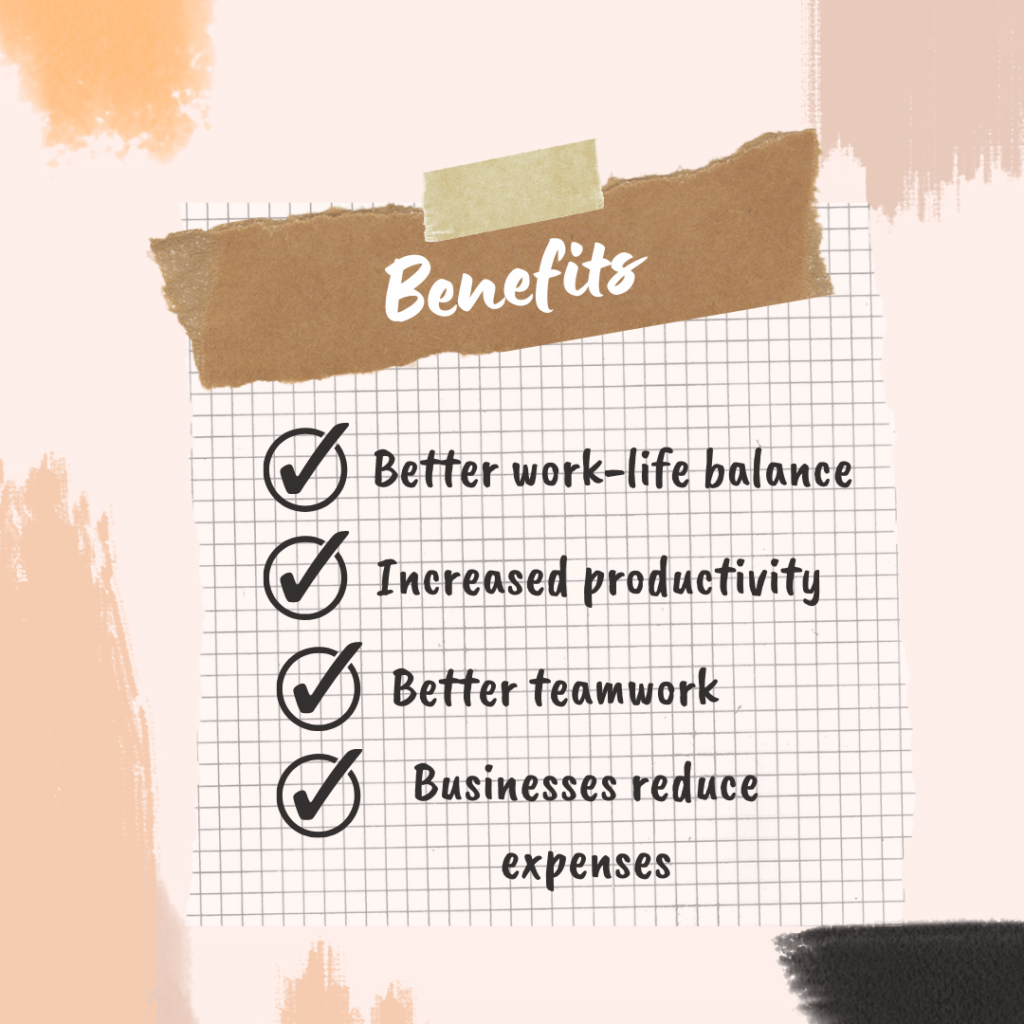The latest buzz in workplaces worldwide is the possibility of implementing a 4-day workweek. The idea in itself is not new, but the conversation has resurfaced during the pandemic since many employers and employees had to rethink the way they work and implement the possibilities to work from home and remotely in general. For some countries and companies, the 4-day workweek has already become a reality whilst others are on the fence and claim it can not be done. But it might be a reality sooner than you think, so let’s dive in and see how it would work in practice and if there are any pros or cons.
How does it work?
The 4-day workweek is not complicated at all. Employees would have the same hours, the same workload, and the same wage – just work one day less every week. This means you maximize the four days you have and get all your work done during those hours. An average 40-hour workweek would become a 32-hour workweek and all employees would get a three-day weekend.
Which countries have implemented this?
In many countries around Europe, the 4-day workweek is already implemented. This does not mean the whole country is following this schedule, for now, only some selected companies are trying it out. But many have already seen many positive effects.
In Belgium, the prime minister Alexander de Croo has made a statement saying they will try it out and give companies and employees more freedom to arrange their own time. He also hopes that this initiative will lead to Belgium having a more dynamic economy.
New Zealand has also jumped on the wagon and started a pilot program for the shorter workweek. And in the UK around 60 companies are onboard.
One of the first countries to implement the shorter workweek was Iceland. The country started the initiative in 2015 when they cut down the 40-hour workweek to 35-36 hours, a test that 2 500 people took part in. The test was later deemed an overwhelming success.
In the same year, the shorter workweek was also tested out in Sweden, however, there was a twist. In Sweden, the test was to implement shorter days instead, instead on the 8-hour workday some companies tried a 6-hour day. Even if the trial were successful in areas like university hospitals, many also thought it would be too expensive to implement this experiment on a larger scale.
Germany, Japan, and Spain have also shown interest in the shorter week and even in the US and Canada, this alternative is being considered.
The pros and cons
As with everything there are pros and cons to experiments, especially big ones like these. Some people will be on board straight away whilst others are on the fence. Here are some of the known pros and cons of having a four-day workweek.

Pros:
- Increased productivity – trial studies made in New Zealand during the four-day workweek trial, shows that employees maintained the same productivity level and that areas like teamwork and work satisfaction increased.
- Better work-life balance – it is no secret that many people experienced a better work-life balance once they started working from home during the pandemic. This has also been one of the factors during the 4-day work week, gaining an extra day off has only had a positive effect and many have reported that they feel less burned out.
- Businesses can reduce their expenses – with one day less many businesses can save money on things like office lunches, happy hours (beer Fridays), and other company culture events. As an employee, you can save money on gas or public transport to go to and from an office and at the same time reduce your carbon footprint.
Cons:
- Customer satisfaction – a four-day workweek will in most cases mean that employees get Fridays off. This could however be a problem in many public sectors, some studies have shown that customers were unhappy with offices being closed on Fridays when they tried to reach a service or run errands.
- It’s not for everyone – after centuries of working Monday to Friday, many are used to the system and routine of only being off two days a week, and a change to that can actually cause a lot of stress. One example is jobs that require employees to be in a lot of meetings throughout the week, with fewer hours in the week it can be hard to find the time to catch up on actual work tasks when more than half the week has been lost to meetings.
Could Malta have a 4-day work week?
Our company – ADM is based on the sunny island of Malta and even if it is a small country, there have been discussions even here to implement the 4-day work week. However, in February, the finance minister Clyde Caruana ruled out the idea, saying the country is not ready for that commitment and that it should be discussed further once the productivity and skillset of workers have improved.
We will keep our hopes up that there will be a change in opinions soon since it is at least worth a try!
